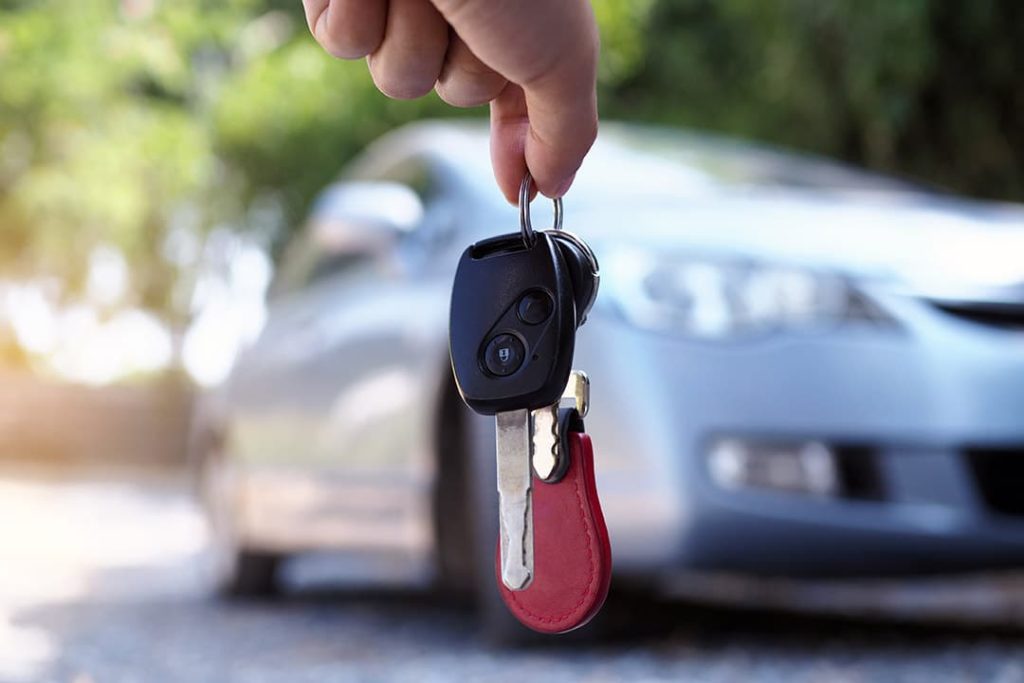By: Rita Cunha | December 15, 2020
Most people know that owning a car is expensive. You should have a stable income before diving head-first into car ownership. But there are still a lot of doubts surrounding this topic. How much does it cost to own a car, exactly? And is it cheaper to own a new car or a used car? How will depreciation affect your investment in a new vehicle? This article answers all those questions, and then some. Let’s get down to it.
How Much Does a New Car Cost?
Ask four people “how much does a car cost” and you will get five answers. In the end, it depends on the maker, if it’s a diesel or electric car, where you’re based, and so on.
However, AAA has come out with a reliable average cost for a new vehicle in 2020: $31,401. That includes sales tax. All in all, the cost of an average new car has gone up.
Of course, you can get a new car for cheaper. If you trade in your old car at a dealership, for example, you can get a lower purchase price than the MSRP. Plus, you can get a car loan to help you finance this purchase.
How Much Does the Average Used Car Cost?
Kelley Blue Book states that the average cost of a used car is around $20,000, depending on where you live in the United States. This is obviously much lower than the pricing on a new vehicle. And you can still get an auto loan to help you cover the cost.
Yet, it’s not all roses. Used cars tend to cost more to maintain since their warranty is usually close to running out.

The True Cost of Car Ownership Explained
All that said, the total cost of owning a car isn’t just what you pay the dealership. No matter what type of car you get (Honda, Toyota, a small sedan, minivans, etc.) there are car ownership costs hidden below the surface.
1. Monthly Auto Loan Payments
For starters, you will have to make monthly car payments to your lender. After you make a down payment on the purchase price of the car, you will have to pay the principal and finance charges.
You will get a better interest rate if you have a good credit score. If you’re riddled with credit card debt, however, you will probably have to bear worse auto loan terms.
Make sure you shop around for different car loan insurers so you get the best deal possible. It will make car ownership more affordable.
2. Auto Insurance
You must also have car insurance, which can cost a pretty penny. Insurance companies will look at your driving record and decide what your auto insurance cost will be. Remember, the best drivers get the best insurance rates.
Once again, it’s best to contact different insurers. Some might lower the cost of car insurance for you.
3. Maintenance Costs
We all know that depreciation makes a car’s average price go down. At the same time, you will have to take on more expenses to keep it running. This is why cars are generally considered to be a bad investment, even though they’re practically a necessity.
You will have to visit an auto shop for oil changes, tire changes, and more. An old car will carry higher repair costs, but even new cars suffer from wear and tear. Make sure to budget for them.
4. Driving Costs
Similarly, driving a car isn’t free. Gas prices vary wildly across the country, with fuel costs being the lowest in the south and midwest, according to AAA.
Even if you have an electric car and can recharge for next to nothing, there are still driving costs to account for. Parking fees, for example, can add up to a lot if you live in a big city such as New York.
5. Licenses, Registration, and Taxes
Lastly, besides car insurance, maintenance, and loan payments, there are other annoying costs of owning a car. Registration fees, car taxes, title fees, licensing fees—the list goes on depending on what state you live in.
Is It Better to Lease or Buy a Car?
Given all that, which would you say is more financially wise: owning a car or leasing one? Well, it depends.
If you’re someone who likes driving all kinds of new vehicles, wants to be covered by warranty, and doesn’t want to bother with maintenance or car insurance, leasing may be for you.
But if you want to settle down with one beloved car and can take on the average annual cost of ownership, go ahead and get yourself a new pair of wheels! You can even choose between buying a new car or a used car, to avoid depreciation costs.
Related Articles:
- All About Credit Repair Hackers
- Make Money Online With Google
- The Best Way to Pay Off Student Loans (In 7 Simple Steps)
- Your Guide to All Loréal Brands, Coupons, and More!
- Free and cheap alternatives to Microsoft Office
- Target Cashback
- Thanksgiving Day Shopping 2020: Pre-Black Friday Sales & COVID-19 Impact
- How to Take Advantage of Survey Reward Sites
- What To Sell On eBay
- 10 Best Sites to Take Online Polls for Rewards
- American Restaurant Chains with Happy Hour
- The 6 Best Investing Apps for 2020
